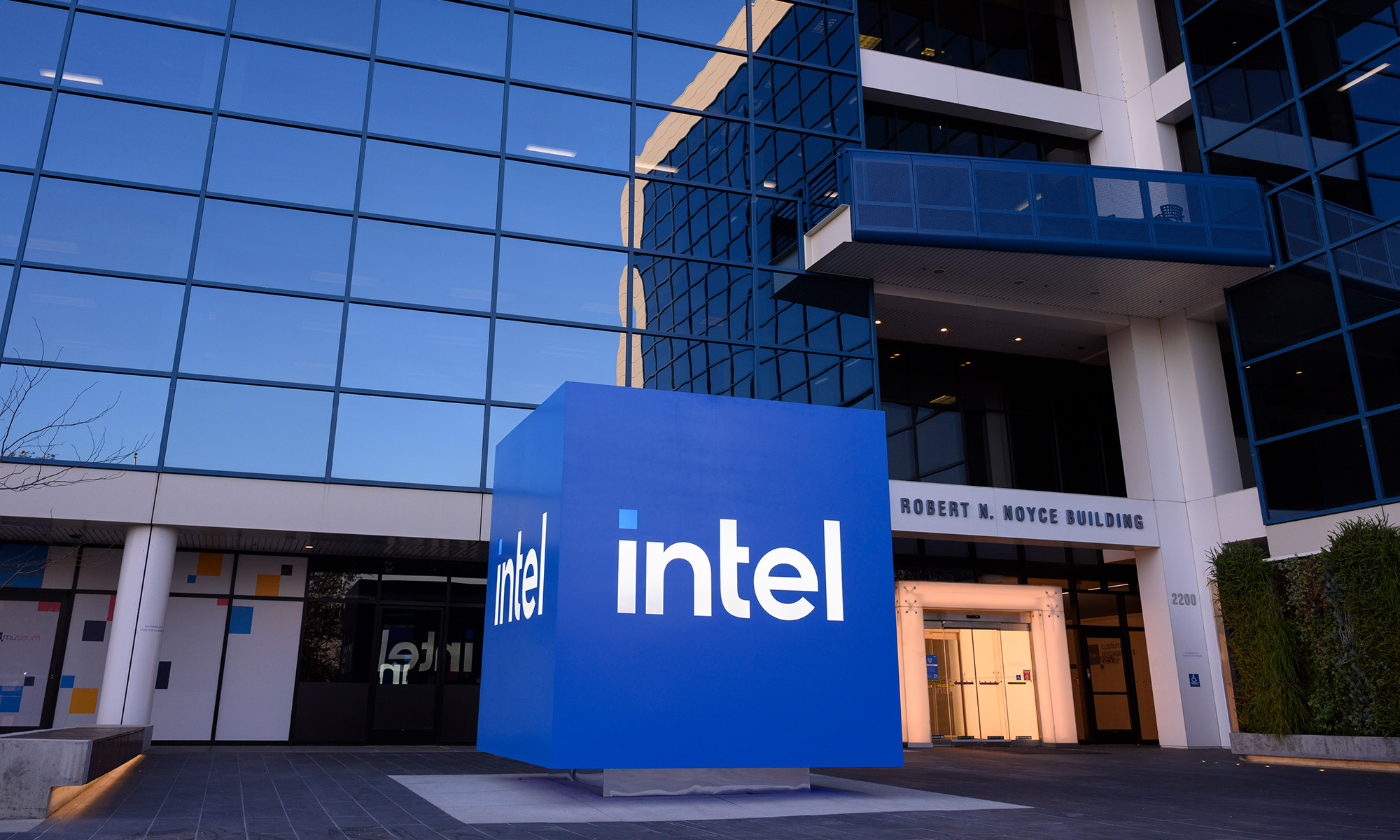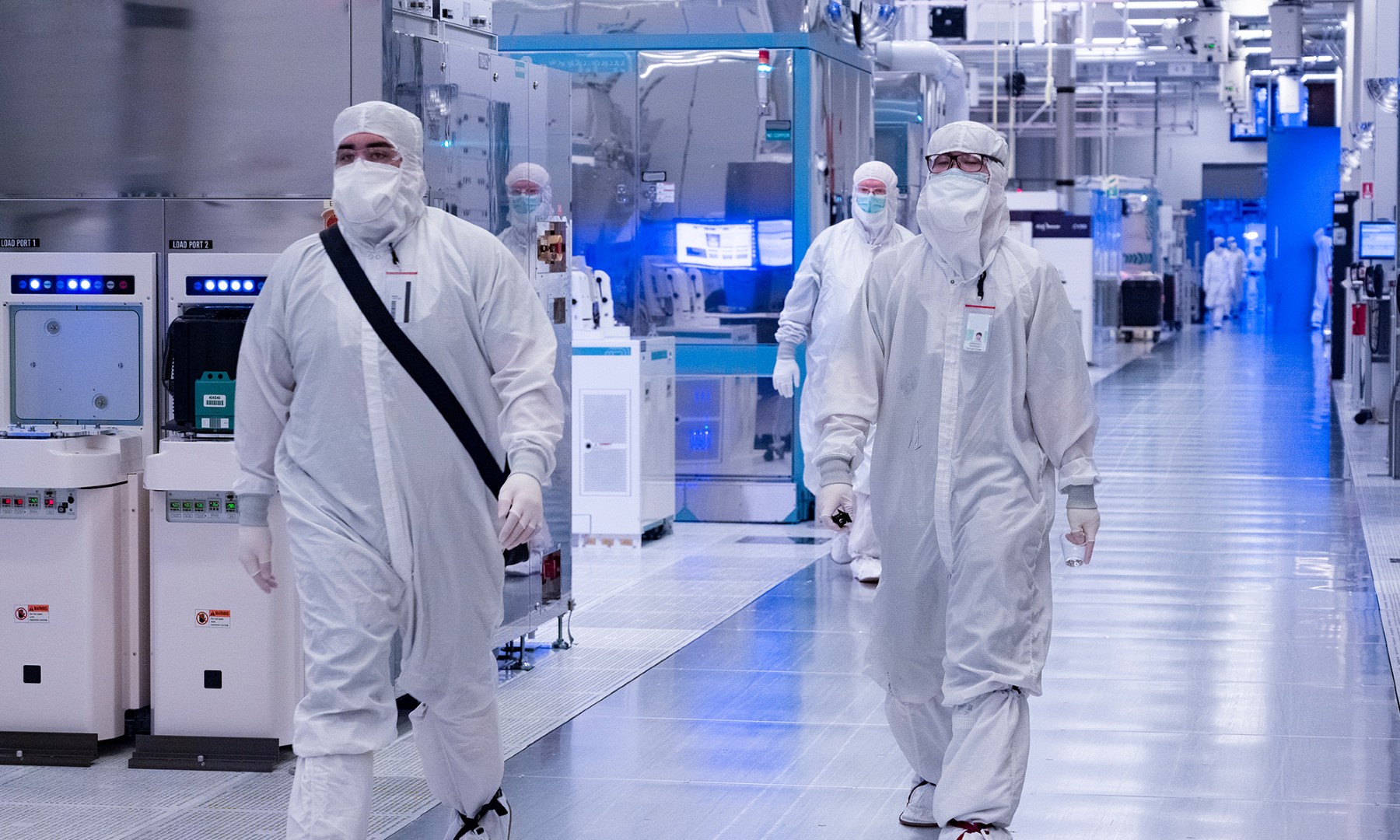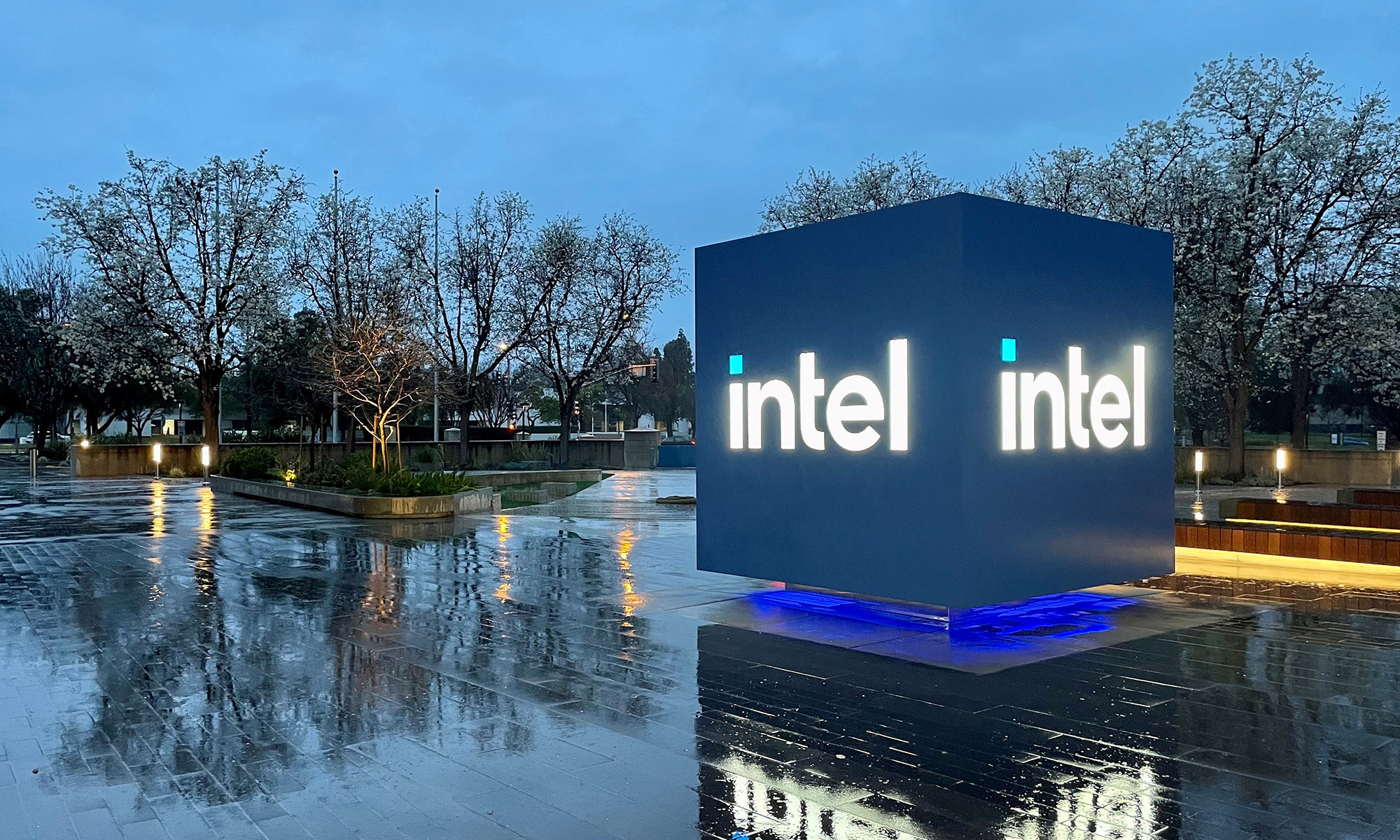
Image credit: Intel.
My fellow Foolish colleague Anders Bylund penned a very interesting column comparing processor giant Intel (INTC 0.29%) with graphics specialist NVIDIA (NVDA +0.87%). In the end, Bylund prefers to own Intel over NVIDIA because he prefers Intel's "dominant market position and calmer risk/reward ratio." He's also a big fan of Intel's fatter dividend yield.
Something that stood out to me, though, was that Bylund refers to NVIDIA as a competitor to Intel in the data center. Although it is true that they have competing product lines, I'm not sure that these two companies are broadly "competitors." Here's why.
The only points of overlap: automotive and HPC accelerators
The vast majority of NVIDIA's revenue comes from the sale of stand-alone graphics processors targeted at gamers. Intel doesn't even build stand-alone high-performance graphics products, so it's not even a competitor to NVIDIA in the latter's core market. If anything, their products are largely complementary: Intel's high-performance gaming CPUs (NVIDIA doesn't compete here) are often paired with NVIDIA's high-performance gaming-graphics processors.
The two areas where Intel and NVIDIA do compete are in the automotive segment -- both Intel and NVIDIA provide solutions for in-vehicle infotainment and the like -- as well as in specialized high-performance computer accelerators. The latter is probably the more interesting of the two from a competitive-comparison perspective. NVIDIA builds specialized, high-performance variants of its graphics processors designed to accelerate highly parallel workloads. NVIDIA brands these Tesla.
Intel competes with NVIDIA's Tesla with its own Xeon Phi processor line. Unlike Tesla, Xeon Phi isn't based around a graphics architecture that's being repurposed, but is an entirely different architecture that Intel builds specifically to accelerate high-performance computing workloads.
However, Xeon Phi represents an extremely small portion of Intel's data center group revenue, and Tesla accelerators are by no means NVIDIA's larges business.
What does this mean for the companies and stocks?
Here's the thing: NVIDIA's Tesla-related revenue came in at $143 million in the most-recent quarter -- approximately 11% of the company's entire revenue base. A couple of years of 50%+ growth year over year in this business could mean some pretty substantial revenue/profit growth for the company. However, if Intel were to win over all of NVIDIA's Tesla revenue with Xeon Phi, it wouldn't move the needle in terms of revenue or operating income by all that much for the chip giant.
What does this mean for the stocks, then? It means that, if NVIDIA can keep its Tesla business growing (by defending market share, as well as riding the secular growth wave), then this could have a very real and material positive impact on the company's business. Conversely, if Intel starts grabbing large amounts of share here, it could stunt the growth of this particular product category for the graphics giant.
For Intel, though, share shifts aren't going to have a big impact on its financials one way or another. Winning some share against NVIDIA would be "nice" for the company, and would make for some good PowerPoint slides for investors. At the end of the day, however, it's not something that will matter much to Intel's stock price one way or another.






